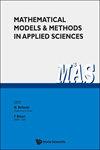Reasons explaining the difficulties of understanding the concepts in the study of general chemistry in Burundi universities
IF 3
1区 数学
Q1 MATHEMATICS, APPLIED
Mathematical Models & Methods in Applied Sciences
Pub Date : 2023-01-01
DOI:10.12988/ams.2023.917263
引用次数: 0
Abstract
This study was conducted to investigate reasons encountered in understanding concept in the study of general chemistry by undergraduate students in Burundi. Burundian University students were compared on (i) Teacher not leaving time for questions, (ii) no opportunity for group studies, (iii) syllabus wideness, and the using of a projector’ as a reason for concept difficulty in the study of general chemistry. A Difficult Concepts in General Chemistry Questionnaire (DCGCQ) was administered to 817 undergraduate students to collect quantitative data for the study while a Difficult Concepts in General Chemistry Interview Guide (DCGCIG) was the qualitative instrument used to elicit responses from the 8 randomly selected participants from 2 public universities and 2 private universities. Among 23 concepts investigated, the results showed that pH and octet rule are perceived as the most difficult concepts in the study of chemistry. On the basis of chi-square test, a significant difference was noticed for concepts such as Octet rule, Electronegativity, Quantum number, Chemical equilibration,解释布隆迪大学普通化学研究中理解概念困难的原因
本研究旨在调查布隆迪本科生在普通化学学习中理解概念时遇到的原因。布隆迪大学的学生在以下方面进行了比较:(i)老师没有留时间提问,(ii)没有机会进行小组研究,(iii)教学大纲的宽度,以及使用投影仪作为普通化学学习概念困难的原因。采用《普通化学难概念问卷》(DCGCQ)对817名本科生进行定量调查,采用《普通化学难概念访谈指南》(DCGCIG)进行定性分析,从2所公立大学和2所私立大学随机抽取8名参与者进行问卷调查。在研究的23个概念中,pH值和八隅规则被认为是化学研究中最难的概念。在卡方检验的基础上,八隅体规则、电负性、量子数、化学平衡、
本文章由计算机程序翻译,如有差异,请以英文原文为准。
求助全文
约1分钟内获得全文
求助全文
来源期刊
CiteScore
6.30
自引率
17.10%
发文量
61
审稿时长
1 months
期刊介绍:
The purpose of this journal is to provide a medium of exchange for scientists engaged in applied sciences (physics, mathematical physics, natural, and technological sciences) where there exists a non-trivial interplay between mathematics, mathematical modelling of real systems and mathematical and computer methods oriented towards the qualitative and quantitative analysis of real physical systems.
The principal areas of interest of this journal are the following:
1.Mathematical modelling of systems in applied sciences;
2.Mathematical methods for the qualitative and quantitative analysis of models of mathematical physics and technological sciences;
3.Numerical and computer treatment of mathematical models or real systems.
Special attention will be paid to the analysis of nonlinearities and stochastic aspects.
Within the above limitation, scientists in all fields which employ mathematics are encouraged to submit research and review papers to the journal. Both theoretical and applied papers will be considered for publication. High quality, novelty of the content and potential for the applications to modern problems in applied sciences and technology will be the guidelines for the selection of papers to be published in the journal. This journal publishes only articles with original and innovative contents.
Book reviews, announcements and tutorial articles will be featured occasionally.

 求助内容:
求助内容: 应助结果提醒方式:
应助结果提醒方式:


